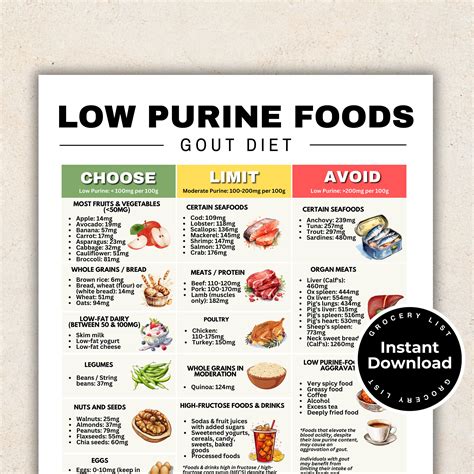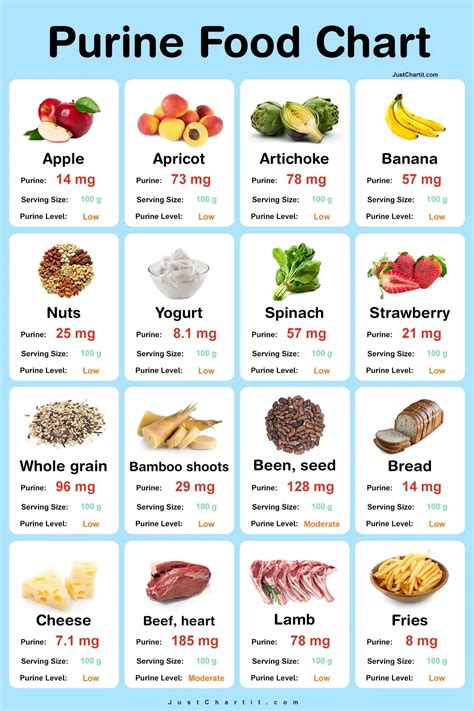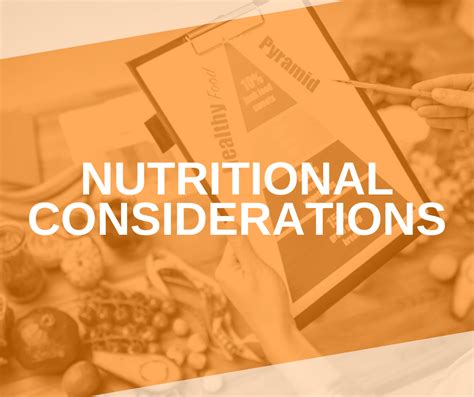Intro
Discover foods low in purines, including low-purine meats, veggies, and fruits, to manage gout and uric acid levels, with a balanced diet rich in purine-free and low-purine foods.
Eating a balanced diet is essential for maintaining overall health, and for individuals who suffer from gout or are at risk of developing kidney stones, it's crucial to be mindful of the types of food they consume. Foods low in purines are especially important for these individuals, as purines can exacerbate their conditions. Purines are naturally occurring substances found in the body and in certain foods, and when they break down, they form uric acid. High levels of uric acid can lead to the formation of urate crystals, which can cause gout and other health issues.
Gout is a type of arthritis that causes sudden and severe joint pain, often in the big toe. It's a common condition that affects millions of people worldwide, and diet plays a significant role in managing its symptoms. By eating foods low in purines, individuals with gout can help reduce their uric acid levels and alleviate their symptoms. Additionally, a low-purine diet can also help prevent the formation of kidney stones, which are hard deposits that form in the kidneys when there is an imbalance of water, salts, and other substances in the urine.
A well-planned diet that includes a variety of foods low in purines can help individuals with gout or kidney stones manage their conditions effectively. It's essential to note that everyone's nutritional needs are different, and it's always best to consult with a healthcare professional or a registered dietitian to determine the best diet plan for individual needs. However, there are some general guidelines that can help individuals make informed food choices. Foods that are low in purines include fruits, vegetables, whole grains, and lean proteins, while foods that are high in purines include organ meats, seafood, and certain types of meat.
Foods Low In Purines

Benefits Of A Low-Purine Diet
A low-purine diet can have numerous health benefits, especially for individuals with gout or kidney stones. Some of the benefits include: * Reduced uric acid levels: A low-purine diet can help reduce uric acid levels in the body, which can alleviate symptoms associated with gout and kidney stones. * Improved joint health: A low-purine diet can help reduce inflammation and improve joint health, which can reduce the risk of gout attacks. * Reduced risk of kidney stones: A low-purine diet can help reduce the risk of kidney stones by reducing the amount of uric acid in the urine. * Improved overall health: A low-purine diet can help improve overall health by reducing the risk of other health conditions, such as heart disease and diabetes.Foods High In Purines

Managing Gout With Diet
Diet plays a significant role in managing gout symptoms. A low-purine diet can help reduce uric acid levels and alleviate symptoms associated with gout. Some tips for managing gout with diet include: * Eating a balanced diet that includes a variety of foods low in purines * Limiting or avoiding foods high in purines * Staying hydrated by drinking plenty of water * Avoiding foods high in sugar and salt * Losing weight if necessary, as excess weight can increase the risk of gout attacks It's essential to note that diet is just one aspect of managing gout, and it's always best to consult with a healthcare professional for personalized advice.Nutritional Considerations

Meal Planning Tips
Meal planning is essential when it comes to managing gout and kidney stones. A well-planned diet that includes a variety of foods low in purines can help reduce uric acid levels and alleviate symptoms. Some meal planning tips include: * Planning meals in advance to ensure that they are balanced and low in purines * Shopping for groceries regularly to ensure that fresh fruits and vegetables are always available * Cooking meals at home using fresh ingredients to avoid processed foods * Avoiding restaurants and takeout, which can be high in purines and unhealthy ingredients * Keeping a food diary to track food intake and identify trigger foods It's essential to note that meal planning is just one aspect of managing gout, and it's always best to consult with a healthcare professional for personalized advice.Conclusion And Next Steps

What are purines and how do they affect the body?
+Purines are naturally occurring substances found in the body and in certain foods. When they break down, they form uric acid, which can lead to the formation of urate crystals and cause gout and other health issues.
What are some examples of foods low in purines?
+Examples of foods low in purines include fresh fruits, such as apples and bananas, fresh vegetables, such as leafy greens and broccoli, whole grains, such as brown rice and quinoa, and lean proteins, such as chicken and fish.
How can I manage gout with diet?
+Diet plays a significant role in managing gout symptoms. A low-purine diet can help reduce uric acid levels and alleviate symptoms associated with gout. It's essential to eat a balanced diet that includes a variety of foods low in purines, limit or avoid foods high in purines, and stay hydrated by drinking plenty of water.
We hope this article has provided you with valuable information on foods low in purines and how they can help manage gout and kidney stones. If you have any questions or comments, please don't hesitate to reach out. Share this article with your friends and family to help them understand the importance of a low-purine diet. Take the first step towards managing your gout or kidney stones by consulting with a healthcare professional or a registered dietitian to determine the best diet plan for your individual needs.
